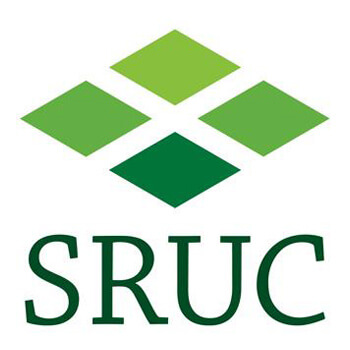University of Wales

Founded: 1893
Address: King Edward VII Avenue - Cardiff, United Kingdom, Wales
Phone: +44 29 20376999
Address: King Edward VII Avenue - Cardiff, United Kingdom, Wales
Phone: +44 29 20376999
Here you find out University of Wales complete information about fees, location, degree University of Wales offers, number, website, and much more. University of Wales is a leading university in Cardiff - United Kingdom.
You can also find out jobs at University of Wales for students, teachers, and professors. We also update the database for an internship at University of Wales for students.
Brought into being through the determination, enthusiasm for learning, and generosity of ordinary Welsh people, the establishment of the University of Wales by Royal Charter in 1893 was regarded as one of the most important political and social developments in the nineteenth century. The University of Wales has a long and proud history, playing an important role in the development of higher edu...cation in Wales.
Through the University’s support for the Centre for Advanced Welsh and Celtic Studies (CAWCS), Geiriadur Prifysgol Cymru (The Welsh Dictionary), Gregynog Hall (bequeathed to the University in the 1960’s) and the University of Wales Press, it helped to promote and celebrate the language, heritage and culture of Wales.
Over the years the University has adapted in order to be in a position to respond to the needs of students, both in Wales and further afield.
In October of 2011, the governing bodies of the University of Wales, Swansea Metropolitan University and the University of Wales Trinity Saint David made a commitment to irrevocable constitutional change and merger. The first phase of this process was completed in 2012 with the merger of University of Wales Trinity Saint David and Swansea Metropolitan University, as well as the created of Adduned Cymru -The Wales Pledge.
In August 2017, both the University of Wales and the University of Wales Trinity Saint David approved a deed of union which delivered on the original policy objective of integrating two historic Universities, thus creating a new University for Wales.
The transformed University will build upon the excellence and heritage of its founding institutions to drive forward a radical new education system that addresses the specific needs of Wales whilst also providing programmes that are attractive to students from all parts of the UK and internationally.
Over the years the University has adapted in order to continue to be at the heart of the nation’s academic, intellectual and cultural life. Responding to Government policy and the decisions of the founding University institutions to seek their own degree awarding powers, the University of Wales has undergone radical restructuring.
In 2007 the University was restructured when it was clear that the original ‘federal’ structure of the University of Wales no longer served the Welsh higher education sector.
More recently, in October of 2011, the governing bodies of the University of Wales, Swansea Metropolitan University and the University of Wales Trinity Saint David made a commitment to irrevocable constitutional change when it was announced that the institutions were to merge under the 1828 Charter of the University of Wales Trinity Saint David. The first phase of this process was completed in 2012 with the merger of University of Wales Trinity Saint David and Swansea Metropolitan University, as well as the created of Adduned Cymru -The Wales Pledge.
In August 2017, both the University of Wales and the University of Wales Trinity Saint David approved a deed of union which delivered on the original policy objective of integrating two historic Universities, thus creating a new University for Wales. The University of Wales will cease to be an accrediting body for other Universities in Wales and will bring to a close validated programmes offered at centres in the UK and overseas.
The merger process is a detailed and complicated progress and can only be finalised when the University of Wales has completed its legal obligations to current students, international collaborative centres and other stakeholders. During this transitional time, the University will continue to offer academic and support services and honour all our commitments to both Students, Graduates and stakeholders.
Spanning three centuries, the University of Wales has been regarded as a national institution which has been at the heart of Welsh educational and cultural life. The establishment of the University in 1893 was regarded as one of the most important political and social developments in the nineteenth century. The citizens of Wales, through the generosity of ordinary men and women, campaigned for the right for University education in their own country. The granting of a Royal Charter for the establishment of a new national university signified a clear commitment to the people of Wales.
The further development of regional learning centres, through the establishment of colleges in Aberystwyth, Bangor, Cardiff and Swansea was a significant development and reinforced the regional presence of the University within Wales. The formation of a Federal University allowed the constituent Colleges to develop strong regional centres of learning representing distinctive features of educational delivery and research, while benefitting from a single, strong, degree ‘brand’. The federal University of Wales became a catalyst for a distinctive educational system and was known for the quality of its international research.
The people of Wales regarded their University as a national institution which was celebrated on both a national and international stage. Through the University’s support for the Centre for Advanced Welsh and Celtic Studies (CAWCS), Geiriadur Prifysgol Cymru (The Welsh Dictionary), Gregynog Hall (bequeathed to the University in the 1960’s) and the University of Wales Press, it helped to promote and celebrate the language, heritage and culture of Wales.
Over the years, the Federal University faced a series of structural changes with some of the constituent colleges calling for more autonomy. In 2001 the then newly established Government of Wales undertook a detailed review of higher education in Wales. One of the key recommendations was that each University and higher education institution in Wales should seek its own degree awarding powers. This political decision had major implications for the University of Wales, with all the constituent colleges moving to gain their own taught and, and in many cases, research degree powers. As a result, the original federal structure, which was at the heart of the University, was no longer required, and the former constituent colleges left the University of Wales structure over a period of time.
By 2004, all of the original University Colleges had broken away from the University of Wales. Under the leadership of the Pro- Chancellor, Lord Wigley of Caernarfon, the University restructured itself into an autonomous institution, and for the first time in its history it sought to define a role for itself alongside all the other academic institutions in Wales.
The University appointed a Vice-Chancellor to lead the strategic development of the institution, and put in place a team of academic staff and senior officers to contribute to new activities in support of the University’s mission. While the University continued not to register students in its own right, it continued to accredit degrees and awards for several academic institutions in Wales, to validate programmes of study delivered by partner centres at home and overseas, and continued the University’s record in supporting a range of important cultural and heritage services.
You can also find out jobs at University of Wales for students, teachers, and professors. We also update the database for an internship at University of Wales for students.
Brought into being through the determination, enthusiasm for learning, and generosity of ordinary Welsh people, the establishment of the University of Wales by Royal Charter in 1893 was regarded as one of the most important political and social developments in the nineteenth century. The University of Wales has a long and proud history, playing an important role in the development of higher edu...cation in Wales.
Through the University’s support for the Centre for Advanced Welsh and Celtic Studies (CAWCS), Geiriadur Prifysgol Cymru (The Welsh Dictionary), Gregynog Hall (bequeathed to the University in the 1960’s) and the University of Wales Press, it helped to promote and celebrate the language, heritage and culture of Wales.
Over the years the University has adapted in order to be in a position to respond to the needs of students, both in Wales and further afield.
In October of 2011, the governing bodies of the University of Wales, Swansea Metropolitan University and the University of Wales Trinity Saint David made a commitment to irrevocable constitutional change and merger. The first phase of this process was completed in 2012 with the merger of University of Wales Trinity Saint David and Swansea Metropolitan University, as well as the created of Adduned Cymru -The Wales Pledge.
In August 2017, both the University of Wales and the University of Wales Trinity Saint David approved a deed of union which delivered on the original policy objective of integrating two historic Universities, thus creating a new University for Wales.
The transformed University will build upon the excellence and heritage of its founding institutions to drive forward a radical new education system that addresses the specific needs of Wales whilst also providing programmes that are attractive to students from all parts of the UK and internationally.
Over the years the University has adapted in order to continue to be at the heart of the nation’s academic, intellectual and cultural life. Responding to Government policy and the decisions of the founding University institutions to seek their own degree awarding powers, the University of Wales has undergone radical restructuring.
In 2007 the University was restructured when it was clear that the original ‘federal’ structure of the University of Wales no longer served the Welsh higher education sector.
More recently, in October of 2011, the governing bodies of the University of Wales, Swansea Metropolitan University and the University of Wales Trinity Saint David made a commitment to irrevocable constitutional change when it was announced that the institutions were to merge under the 1828 Charter of the University of Wales Trinity Saint David. The first phase of this process was completed in 2012 with the merger of University of Wales Trinity Saint David and Swansea Metropolitan University, as well as the created of Adduned Cymru -The Wales Pledge.
In August 2017, both the University of Wales and the University of Wales Trinity Saint David approved a deed of union which delivered on the original policy objective of integrating two historic Universities, thus creating a new University for Wales. The University of Wales will cease to be an accrediting body for other Universities in Wales and will bring to a close validated programmes offered at centres in the UK and overseas.
The merger process is a detailed and complicated progress and can only be finalised when the University of Wales has completed its legal obligations to current students, international collaborative centres and other stakeholders. During this transitional time, the University will continue to offer academic and support services and honour all our commitments to both Students, Graduates and stakeholders.
Spanning three centuries, the University of Wales has been regarded as a national institution which has been at the heart of Welsh educational and cultural life. The establishment of the University in 1893 was regarded as one of the most important political and social developments in the nineteenth century. The citizens of Wales, through the generosity of ordinary men and women, campaigned for the right for University education in their own country. The granting of a Royal Charter for the establishment of a new national university signified a clear commitment to the people of Wales.
The further development of regional learning centres, through the establishment of colleges in Aberystwyth, Bangor, Cardiff and Swansea was a significant development and reinforced the regional presence of the University within Wales. The formation of a Federal University allowed the constituent Colleges to develop strong regional centres of learning representing distinctive features of educational delivery and research, while benefitting from a single, strong, degree ‘brand’. The federal University of Wales became a catalyst for a distinctive educational system and was known for the quality of its international research.
The people of Wales regarded their University as a national institution which was celebrated on both a national and international stage. Through the University’s support for the Centre for Advanced Welsh and Celtic Studies (CAWCS), Geiriadur Prifysgol Cymru (The Welsh Dictionary), Gregynog Hall (bequeathed to the University in the 1960’s) and the University of Wales Press, it helped to promote and celebrate the language, heritage and culture of Wales.
Over the years, the Federal University faced a series of structural changes with some of the constituent colleges calling for more autonomy. In 2001 the then newly established Government of Wales undertook a detailed review of higher education in Wales. One of the key recommendations was that each University and higher education institution in Wales should seek its own degree awarding powers. This political decision had major implications for the University of Wales, with all the constituent colleges moving to gain their own taught and, and in many cases, research degree powers. As a result, the original federal structure, which was at the heart of the University, was no longer required, and the former constituent colleges left the University of Wales structure over a period of time.
By 2004, all of the original University Colleges had broken away from the University of Wales. Under the leadership of the Pro- Chancellor, Lord Wigley of Caernarfon, the University restructured itself into an autonomous institution, and for the first time in its history it sought to define a role for itself alongside all the other academic institutions in Wales.
The University appointed a Vice-Chancellor to lead the strategic development of the institution, and put in place a team of academic staff and senior officers to contribute to new activities in support of the University’s mission. While the University continued not to register students in its own right, it continued to accredit degrees and awards for several academic institutions in Wales, to validate programmes of study delivered by partner centres at home and overseas, and continued the University’s record in supporting a range of important cultural and heritage services.
Read More
Details:
LeaderShip: Vice Chancellor: Professor Kate Sullivan
Fees:
Time: 08:45 AM to 04:45 PM
Phone Number: +44 29 20376999
City: Cardiff
Fees:
Time: 08:45 AM to 04:45 PM
Phone Number: +44 29 20376999
City: Cardiff
Timing: 08:45 AM to 04:45 PM
Country: United Kingdom
Staff:
Website: http://www.wales.ac.uk
Country: United Kingdom
Staff:
Website: http://www.wales.ac.uk
Subjects:
Jobs in University of Wales
Currently, there is no job opening in University of Wales as per our database.



















Leave a Reply